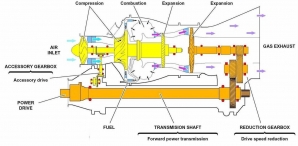Oil cos want Delhi, Mumbai ATF model for six airports to be privatised
Monday, 31 March 2014 08:28
Fearing that new operators of six soon to-be-privatised airports may take over their ATF refuelling facilities, PSU oil firms have asked the government to follow the Delhi and Mumbai airport model of jointly operating the facilities.
After Delhi and Mumbai airports, the government is privatising major airports at Chennai, Kolkata, Guwahati, Ahmadabad, Jaipur and Lucknow. Bids were invited in September last year and concession agreements for transfer of rights were to be signed this month but the announcement of general elections has led to postponement of the move.
Oil PSUs have been owners and operators of aviation fuel facilities since the start of these airports. They have built and upgraded ATF infrastructure at these airports, as well as back-end supply chain, to support jet fuel throughput of about one million kilolitres per annum.
Sources said state-owned firms fear there is an imminent threat that new private operators could take over the existing fuel facilities built with public money over the decades.
They feel private operators may look at revenue maximisation and may float tenders for building/operating new facilities, which could lead to assets built by PSUs becoming redundant. Besides, it will increase the cost of throughput charges many folds which will result into an increase in fuel cost to airlines and ultimately to consumers.
Oil PSUs, sources said, have written to the government saying subsequent to the privatisation of Delhi and Mumbai airports, new airport operators DIAL and MIAL had planned to call for tender for fuel farm facilities.
However, after oil PSUs protested, joint venture companies for fuel farm facilities at Delhi and Mumbai were formed. As a result, Delhi Aviation Fuel Facilities Pvt Ltd, with Indian Oil Corp and Bharat Petroleum Corp holding 37 per cent each and DIAL 26 per cent, was formed.
Mumbai Aviation Fuel Farm Facilities Ltd, a joint venture company of IOC, BPCL and Hindustan Petroleum Corp and MAIL with 25 per cent stake, each was formed for Mumbai Airport.
Delhi Aviation Fuel Facilities is being operated on 'Open Access' common user principle, wherein all suppliers, which includes private firms, can sell aviation turbine fuel (ATF).
Mumbai Aviation Fuel Farm Facilities would be operated on same principle.
Sources said oil PSUs have proposed a similar model for fuel infrastructure at soon-to-be privatised airports that can be integrated and operated under open access for all eligible ATF suppliers on mutually agreed commercial terms, which can be approved by Airports Economic Regulatory Authority.
This will avoid duplication of assets which can lead to redundancy of oil PSUs' assets built over years, they wrote proposing a joint venture company of IOC, HPCL and BPCL.
The existing facilities can be transferred on the similar way it has been done at Delhi and Mumbai airports, that is, on the basis of replacement cost less depreciation based on useful life of the asset.
If required, the Airport Authority of India can become a partner to fast track the process, the oil PSUs said.
Our Packages



News & Events
Chennai International Airport completes its first phase of flood-proofing after deluge last year. Is it enough?
Monday, 14 November 2016 05:40
The employees of the Chennai International Airport can’t forget how water engulfed the tarmac on December…Nine flights diverted over Delhi smog
Monday, 07 November 2016 05:49
JAIPUR: Nine flights, including three chartered planes were delayed by 4-5 hours from landing in Delhi…From The Blog

